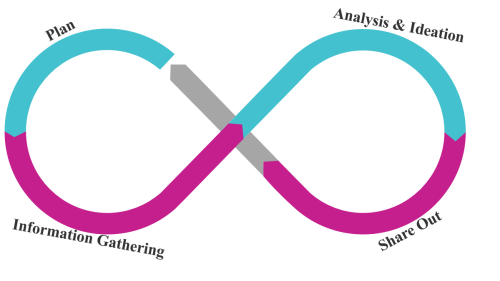What are the needs, challenges, and best practices for building capacity with under-resourced nonprofit organizations that promote equity?
The NYU Metro Center in partnership with TSNE MissionWorks is conducting a Learning Lab to explore this question. Within this work, NYU Metro Center is leading a national field scan of capacity building organizations and conducting in-depth case studies of four capacity building organizations to identify the most effective practices for working with these nonprofits to improve organizational functioning and impact. The findings, in concert with broader Learning Lab efforts, will inform the field of nonprofit practice of the unique capacity building needs of under-resourced nonprofits that promote equity.
This following blog post was originally published on TSNE MissionWork’s webpage.
“How can we better understand the capacity-building needs of under-resourced nonprofits promoting social good?” That is the question that TSNE MissionWorks is asking in order to inform our social impact investment strategy.
To answer this question, we launched the Learning Lab. We realize that to effectively serve organizations in various communities, we must put their needs at the center of our learning and the forefront of this work. This two-year initiative will do just that by using an adapted human-centered design process to gather ideas from our constituents, identify common themes, and share key findings with everyone who participated in the process. Key learning from the Lab’s unique approach will also inform work being done in the nonprofit sector as a whole.
HOW WILL THE LEARNING LAB WORK?
Through the Learning Lab, TSNE MissionWorks intends to be more agile and adaptable in our ongoing efforts to meet the challenges of under-resourced organizations working with our communities. Our human-centered design process consists of four phases to promote these efforts: Planning, Information Gathering, Analysis and Ideation, and Share Out

This process is iterative; with each phase, we will learn something new. The four phases make up a “sprint” (illustrated above). Each sprint will build on the prior. Future sprints will be adapted and tailored based on learnings from prior sprints.
Planning
In this phase, we will work with our constituents to identify relevant questions. To identify these questions we will ask:
- Which nonprofits do we reach out to and why?
- What questions so we want to ask them?
- How do we want to ask those questions?
- Why do we ask those questions?
Information Gathering
In this phase, we will use focus groups, observations, field scans, and literature reviews to answer our planning questions. Additionally, we are working with New York University’s Metropolitan Center for Research on Equity and the Transformation of Schools to conduct in-depth research with capacity-building organizations.
Analysis and Ideation
In this phase, we will take everything we learned and immediately start to make sense of the information by identifying common patterns and themes. For example, we could find that many organizations have identified that marketing and evaluation are a barrier to strong fund development.
Share Out
In this phase, we will share these findings with our peers and the greater nonprofit sector to encourage collaboration, transparency, inform the design of new services, or the reimagining of current services.
DOES IT END THERE?
No! Once we share our findings, we go back to the Planning phase and use what we learned to inform the next iteration of our work. It could be asking more in-depth versions of our initial questions, or prototyping a service based on the learnings. The fun of the Learning Lab is that there are no rules. We are using a human-centered approach to problem solving that continually responds to the needs of our constituents.
WHAT’S TO COME?
In the summer of 2019, we will establish a Learning Board that will provide feedback and guide the work of the Learning Lab. The Learning Board will have four staff members from community-based organizations and three TSNE Mission Works staff members.
____________________________________
About the Author:
At TSNE Mission Works Lilo Altali leads a design-thinking lab, to better understand how to serve low-resourced nonprofits. As a Syrian immigrant, Lilo’s lived experiences interacting with the nonprofits in his community have inspired his career. Previously, he served on the Leadership Team of Mill City Grows, a Lowell based community organization. He has also held roles as an Innovation Strategist at Commonwealth and on the Learning and Certification team at the Ethics and Compliance Initiative. Lilo teaches Change and Innovation Management at Nichols College and is a Project Management Lecturer at Northeastern University.

